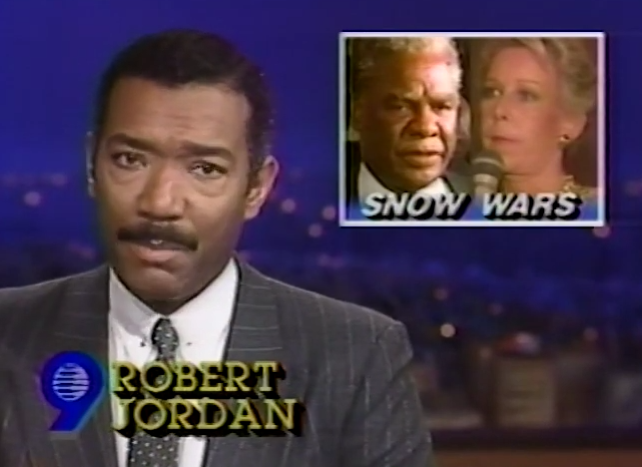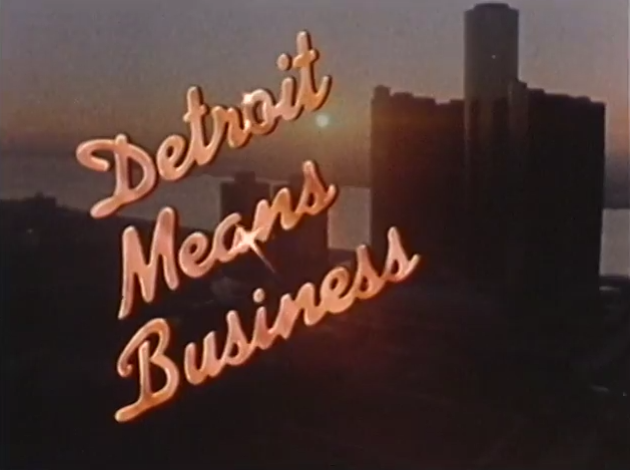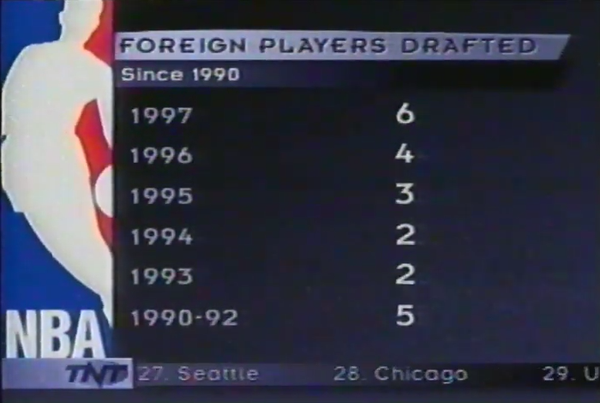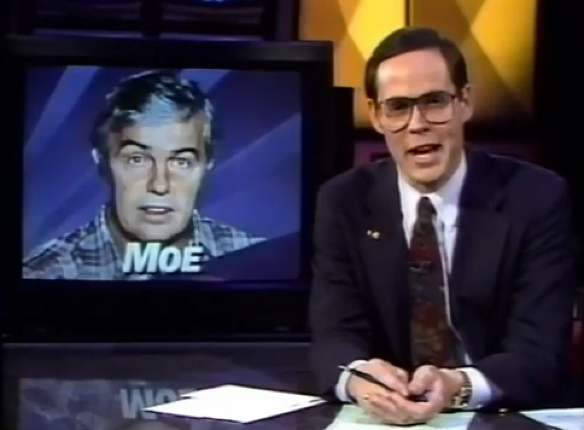The worst general managers
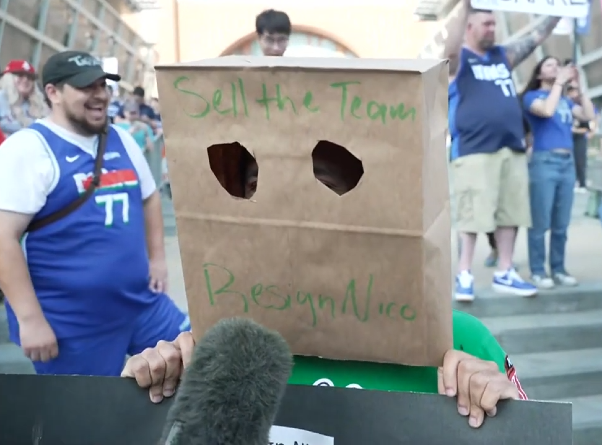
Is that fair? That I sat down to write about Nico Harrison but wrote the title of the column first?
Well, is he?
To his credit, Nico Harrison didn't blow the Cooper Flagg selection. NAILED THAT. To his credit, when the Charlotte Hornet and Washington Wizard front offices called, Nico Harrison called back, understanding that the Hornet and Wizard front offices are, for decades, the ones to deal with if you want to win the deal.
But he lost other deals. That's how it is in this league. One day, you're lauded for securing P.J. Washington's 15 points and eight rebounds per game, the next night you're condemned online because you've traded what could be the best player in franchise history for an injury-plagued big man about to turn 32.
It's like, do people even remember Nico Harrison is the reason Dallas has P.J. Washington? Where would the Mavs be without P.J. Washington, 2-9?
The Mavs are 3-8, and without a general manager, because Nico's fired. A non-basketball executive who made his way over from a shoe company, Nico never shoulda been hired. Undeserved, almost belligerent confidence appeals to corporate types: Mark Cuban's surgically-altered forehead fell in love with Nico Harrison, Patrick Dumont's creepy gap-tooth went and whistled at Nico from across the room.
Now they're both going to blame Nico for the hold Harrison had over each. No executive in the history of sports had his summation read to him as many times before his verdict than Nico Harrison, met with "FI-RE NI-CO" chants every time he slipped on his carefully chosen footwear. No other fanbase can say they delivered their adversary with Message as satisfactorily as Maverick fans, and it worked, Nico is fired.
It won't bring LD back.
Nico's last straw, as far as I can tell, was Mavs owner Patrick Dumont sitting and talking with a rich kid on Monday evening. The kid wore a Lakers Luka Dončić jersey so clearly he is no worse than Dumont's intellectual equal, making the interaction all the more enlightening.
Mavs governor Patrick Dumont and a fan in a Luka Lakers jersey pic.twitter.com/YzzYJ1Qv6P
— Christian Clark (@christianpclark) November 11, 2025
“Basically, Patrick was like, he feels horrible for the trade and wants to make it up to us,” the young man told The Athletic. “That’s basically what he said."
Basically, bro, but not based. Not with those teeth.
I can joke about a gap between teeth because I have one, and don't tell my wife but I would sell the roof over our head to fix the spot between my teeth. Gap-teeth creep gap-toothed people out as much as they creep out normal people, non-gappers.
Anyway, Anthony Davis owns "no timetable for his return." Nico's out, stop hiring brown shoes/blue pants people. I could rant about corporate culture completely seeping its stink throughout the NBA or we can talk about old, bad basketball trades – so – let's set up the tee and launch a few dingers.
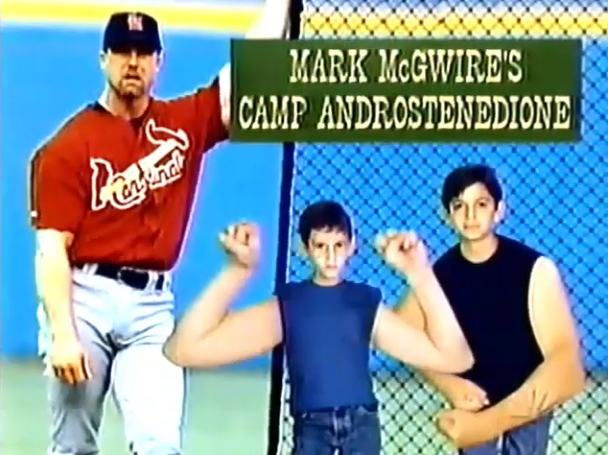
Put the fish in the barrel, make mine a musket, though we'll throw a few back. Teams from the 1950s and 1960s and even the ABA-encouraged 1970s get a pass, general managers were as obsessed with filling the hole in the middle as they were ensuring paychecks cleared on Friday.
The Nets sold Julius Erving to the 76ers for $3 million simply to sustain their float in the parade. The money (over $17 million in today's cash, a little less than what Keldon Johnson makes this season as the league's 108th-highest paid player) covered their NBA expansion expenses, relocation efforts, and the fee it required paying the Knicks to not-at-all threaten Knickerbocker supremacy over its well-won territory.
The 1980s are out because of drugs, every GM was on them, I can't blame moves made under haze. I mean, look at these guys, straight from Sunset Strip:
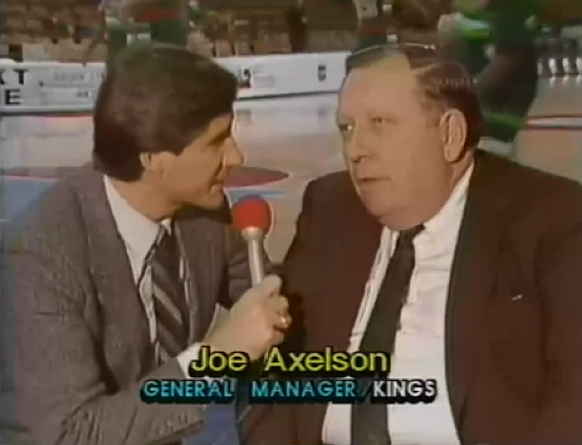
Could I name some names? Sure, I read some books: Eddie Donovan had a tough time with the Braves and Knicks in the 1970s, but nobody was replacing Red Holzman and coming out clean. Traded a backup center for MVP Bob McAdoo and was excoriated for it, drafted the marvelous Luther "Ticky" Burden with his second move as Knick GM. Do you know how great it was to watch another Luther Burden, his grandson, burden New York fans last Sunday?
Those were different times, a long-distance call cost as much as a uniform, the team couldn't afford its uniforms. You couldn't send an email to another NBA general manager unless you both met at some lab in Stanford.
Every GM did have blackberries, once a year, the famous house Crème de Mûre at the hotel bar of the NYC Sheraton after the morning of each NBA draft. Day-drinking upon wrapping up nine rounds of drafting via WATS line from 9:08 AM until 1 PM.
When general managers were flagrant prior to the 1990s, it was mostly as messenger. Delivering the terrible news of a completed trade that the team's owner concocted in the closing minutes of last night's loss. We don't know the name of the general manager of the early-1980s Cleveland Cavaliers because they didn't name the Stepien Rule after him.
These apples were mostly cleared by David Stern, with one notable, outwardly racist, exception. I'm sure all the owners were racist, but Donald Sterling put pen to paper. So let's lead with our well-coiffed caveat.
ELGIN BAYLOR
I'm still reading that Charley Rosen book, slowly. The late Stan Love, in early-2000s conversation with Charley Rosen, called Elgin Baylor "egomaniacal." I hope there are further Stan Love quotes in this book.
Elgin Baylor made bad moves mostly because he continually had to completely cut costs, at all times, all the time, always. And he wasn't callin' the shots by the time the Clips put a hat on Yaroslav Korolev.
DAVID KAHN
Apparently several front offices around the NBA enjoyed my 2013 repudiation of David Kahn's excuses, a blog I am absolutely too scared to re-read. I can tell you that, like Columbus, Kahn was abhorred in his time.
Last seen chiding protestors, Kahn is the ex-sportswriter who put the "obsequious" in "obdurate." He could still beat Bill Simmons in a fight, make no mistake, the shared frequency of their heightened yelping splitting every goblet in whatever wine club those two (would) pay to frequent.
What can we say about David Kahn beyond "he created a team so white that a Minnesota civil rights leader compared its complexion to the 1955 Minneapolis Lakers, specifically."
RICK SUND
Rick Sund began his career as Bucks intern in the 1970s, working under two Hall of Famers, hanging things for tall people:
Without a sophisticated video system, Sund spliced film with Wayne Embry and Don Nelson.
"We'd put them up on hangers," Sund remembered. "Hang them down and then put them together. We did the statistics by phone," Sund said, chuckling. "We didn't have faxes."
I would hope not. Awfully rude noise to wake Nellie from his midday nap.
In his role as Mavs deputy, Sund helped identify the talents which made the Mavs one of the top teams of the mid-1980s, a triumph for the 1980 expansion club.
Dallas' remarkable ascent - winning 43 games in its fourth season - came mainly because of Sund's shrewd tactic: trading players from the expansion draft for future picks.
The young GM found a partner in Cavaliers owner Ted Stepien. Starting in 1980, the Mavericks traded scrubs like Mike Bratz, Jerome Whitehead, Richard Washington and Geoff Houston for first-round picks from 1983 to 1986. The selections produced Derek Harper, Sam Perkins, Detlef Schrempf and Roy Tarpley. With Mark Aguirre, drafted No. 1 in 1981, Dallas soon became one of the West's best teams.
"What Rick did with Cleveland, he ought to be arrested for," one-time Mavericks Coach Dick Motta said in 1984. "There will never be anything like that again."
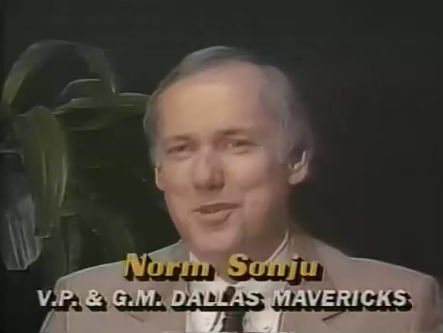
The Mavericks were a wild success at the box office and on court, Sund and president Norm Sonju committing to a faith-based scouting directive from on high (their boss, Mavericks owner Don Carter) and winning with it.
Carter stopped signing checks, though, which coincided with Sonju stepping away and Sund stepping fully into role as lead personnel picker, and man behind the Mavericks' .283 winning percentage in the 1990s. Roy Tarpley's off-court troubles derailed his career, Sam Perkins fled as free agent, Mark Aguirre's resounding output was (essentially) dealt for Fat Lever, who tore up his knee, and the aging Adrian Dantley, who gave money back to the Mavs in exchange for free agency from Dallas.
The luck didn't start there. In a cost-cutting move at the 1990 trade deadline Sund dealt free-agent-to-be Detlef Schrempf and the pick which turned into Antonio Davis for Herb Williams, who was apparently still active in 1990. Sund traded two first-round picks and Bill Wennington for Rodney McCray, who by the looks of his play, took his blanket everywhere. Sund signed 36-year old Alex English to replace Dantley, Alex flitted around for a year before fleeing to an Italian team.
Two years after drafting Randy White No. 8 in the 1989 draft, Sund selected Doug Smith at No. 6. Good names for average Cowboy quarterbacks, but terrible NBA players.

Sund drafted Jim Jackson No. 4 overall in 1992 and couldn't come to contract terms with his rookie. The last NBA holdout, Jackson didn't make his debut until Dallas' 55th game, which Dallas lost, moving the record to 4-51. A year later, with rookie coach Quinn Buckner turning in a 13-69 season, Sund was asked to leave.
He immediately found work in Seattle in 1994 and wasn't alone in that, though Sund didn't work for a record company. In 1995 Doug Collins needed a de facto GM to work under Doug in Detroit, Collins called the SuperSonics and asked permission to hire Sund, Seattle agreed. Sund and Collins collected a winner with inherited players plus Collins/Sund acquisitions Theo Ratliff and Otis Thorpe, though Collins grew to hate Thorpe, Ratliff. Detroit dealt two firsts and two seconds for Stacey Augmon (Collins hated him immediately) and Grant Long (Doug Collins loathed Grant Long).
In 1996 the Pistons refused to outbid the Knicks for Allan Houston, even with Bird Rights, losing an All-Star partner for Grant Hill. Houston signed for seven years and $56 million, not unreasonable terms, Allan was the league's 30th-highest paid player in 1996-97. Otis Thorpe was No. 16.
Sund was able to pawn 1997-98's 25th-highest paid salary, Otis Thorpe, to Vancouver during the 1997 offseason for a future first-round draft pick. Detroit blew the pick on Darko Milicic in tribute to Sund.
Not really, but I'm cranky after spending an entire afternoon researching Rick Sund. Rick's worst move, dealing Theo Ratliff and Aaron McKie to Philadelphia for Jerry Stackhouse, was Doug Collins' deal, Sund said he fought against it, everyone knew it would bust for Detroit at the time and it did, Stack and Hill can't shoot. Collins quit soon after, let Sund clean up the mess which Sund did not, spending his free agent cap space on Loy Vaught's awful back and Christian Laettner (but after Laettner tore his Achilles during the 1998 lockout).
Sund drafted Bonzi Wells No. 11 in 1998, nice Joe Dumars-replacement there, but traded him to to Portland during training camp for cash to sign Vaught. Drafted Scot Pollard but used him as salary ballast in exchange for Laettner. Weeks after this, with the shortened 1999 season ending five months after camp began, Dumars retired from playing and was immediately given a front office gig under Sund and Piston talk-to-press president Tom Wilson.
“Joe is very comfortable with that, in fact he wanted it that way,” Wilson said. “There are no jealousies.”
Sund and Dumars presided over Hill's departure in 2000, the addition of Ben Wallace. Joe took over in 2001, Sund returned to Seattle and no, we won't blame him for the SuperSonics leaving Seattle. That reminds us, we'll be back in 20 minutes.
Sund got the SuperSonics job and was the immediate beneficiary of new Seattle owner Howard Schultz trying to out-Mark Cuban the Mavs' front office in Cuban's second offseason with Dallas. Schultz and Sund outbid the Mavericks for restricted free agent Calvin Booth, best known for one playoff game, six-years and $37 million. Schultz stopped spending money after that.
Gary Payton's next contract extension and Desmond Mason's first contract extension were traded to Milwaukee in 2003 for Ray Allen, nice haul, but Sund wasn't outfitted financially by the misers at EARLY 2000s STARBUCKS to appropriately surround Allen and the inherited Rashard Lewis.
Sund drafted exceptionally well – Vlad Radmanovic at No. 12, Earl Watson at No. 40, Bobby Simmons at No. 42, Nick Collison and Luke Ridnour in the late lottery – but Sund could never fill the hole in the middle. He drafted Robert Swift and Mouhamed Sene in the lottery, Johan Petro at No. 25, found no help in free agency.
After Sund's SuperSonics made the second round in 2005, Portland outbid Seattle for the services of Mr. SuperSonic, head coach Nate McMillan. Worse, Sund had to replace McMillan with probably the lightest-paid head coach in the NBA, Bob Weiss, a 63-year old ex-player who hadn't been a head coach for a dozen years.
(Imagine Doug Christie bucking the odds in Sacramento and turning into a 52-win second-round playoff team in 2027, only for the Kings to refuse to bid for his services as Golden State hires Christie to replace the retiring Steve Kerr. And the Kings hire Vinny Del Negro to replace Doug Christie but only because Brian Shaw turned down the contract the Kings offered because Shaw makes more money occasionally podcasting.)
Poor Bob lasted 30 games with the 2005-06 SuperSonics before he was replaced with Bob Hill, poor Bob. Hill won 31 games in 2006-07 because Sund traded Vlad Rad for Chris Wilcox, Sund was let go for a fella named "Sam Presti" as soon as the season ended.
And hired by the Hawks, in 2008, because this 'Rick Sund' bit will never end!
With the Hawks, he let Josh Childress flee to Greece and filled his salary spot with Maurice Evans. He signed Joe Johnson to a max contract I called "ridiculous" in a Yahoo! headline. The Hawks made the playoffs every year Sund was there but mildly, Danny Ferry replaced him in 2012.
RYAN MCDONOUGH
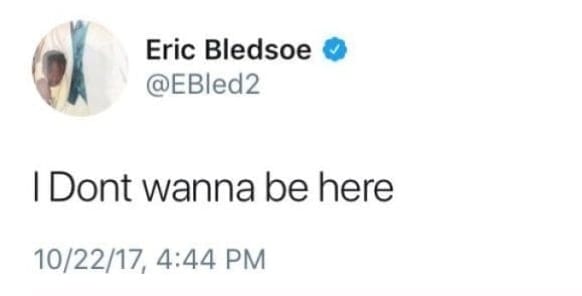
Took over in Phoenix in 2013 from Lance Blanks, who wasn't allowed to spend a lick under Suns owner Robert Sarver. Sarver let McDonough spend once – once! – he got a five-buck bill to use inside the store to get a toy, but quickly, while Sarver went out to the car to smoke and talk to women who aren't mom.
McDonough was in a rush and was kind of overwhelmed and spent his money on Eric Bledsoe, traded for Bledsoe's usage demands and the responsibility of Bledsoe's upcoming, expected, five-year, $70 million deal. For a year, 2013-14, it worked! And then it briefly didn't, McDonough panicked at the 2015 trade deadline and sent Goran Dragic to Miami for a pair of picks which didn't really pan out (Dragic started a Finals game five years later), and moved Isaiah Thomas toward the Celtics.
Ryan used a pick (earned from making a Boston Legend outta Isaiah Thomas) to pair with the rights to Bogdon Bogdonovic and trading up to draft Marquess Chriss No. 8 in the 2016 NBA draft. Four picks earlier, with the Suns' own selection, he added Dragan Bender. This collection understandably earned the second-worst record in the NBA in 2016-17, the Suns chose Josh Jackson with that draft bounty.
He found Devin Booker in the late lottery, but also DeAndre Ayton in the high lottery. He traded a first-rounder for Brandon Knight and gave Knight a five-year, $70 million deal. Knight tore his knee up and worked only 106 times under the contract. He used a No. 13 and No. 28 pick to deal for a No. 8 (Chriss!), but it cost him Bogdan Bogdanovic, Isaiah Thomas and Markieff Morris ahead of their best seasons. He held on far too long to an angry player with an expiring contract and active Twitter account.
He fired coach Earl Watson (his own hire) three games into Watson's second full season, blatantly pinning a 2017-18 turnaround on hurry-take-this interim head coach Jay Triano, who had to play Tyler Ulis the fifth-most Suns minutes and won 21 times in 79 attempts.
A year later, after leaving rookie coach Igor Kokoskov rookies Elie Okobo and 20-year old De'Anthony Melton to manage point guard, Sarver fired McDonough a week into 2018 training camp. Didn't even give Ryan the three games McDonough allowed Earl Watson before canning him.
Also there were goats.
STU JACKSON & ROB BABCOCK

Jackson we've discussed, though it is important to note that Stu's 1997 Otis Thorpe deal didn't cost Vancouver the Grizzlies, that was David Stern.
The Pistons smartly kicked the owed conditional pick down year-by-year until it reached as high as it could. Vancouver still got its 1998 (Mike Bibby), 1999 (Steve Francis) and 2000 (Stromile Swift) picks, Memphis still got the Grizzlies' 2001 (Shane Battier) and 2002 (Drew Gooden) picks.
A few years later, Rob Babcock did his best to send the Raptors to Nashville. Rob was a good guy who knew basketball, forced into an awful position as the executive forced to clean up a mess between an All-Star and the employer the All-Star hates.
He infamously drafted Rafael Araujo No. 8 in 2004, ahead of Andre Iguodala, but Iguodala was chosen ahead of Luke Jackson, who worked half as many NBA games as Araujo. Babcock chose Charlie Villanueva directly ahead of Channing Frye, Joey Graham directly ahead of Danny Granger, these drafts happen. In Rob's case it was the same draft, 2005, when it happened.
He acquired Jose Calderon and Mike James in the same summer, potent Raptors legends. Didn't matter: Rob Babcock is the guy who traded Vince Carter for a bag of chips that didn't even taste like ketchup. Reviled trade then, absurd to recollect two decades later.
Babcock traded Carter to New Jersey in late 2004 for three players and two first-round draft picks. Chief among the immediate expected returnees was Net center Alonzo Mourning, four-plus years after Alonzo Mourning retired the first time, a pretty good indication the 34-year old Mourning should not be "expected" in Toronto.
Seeking a center younger than Mourning, the Raptors also earned 33-year old Aaron Williams from New Jersey. Also incoming was Eric Williams, 32-years old and seven years removed from an ACL tear. Each combined for 99 games with the team. Mourning was paid to go away, while Carter was probably the best player in the East in the second half of 2004-05, ensuring the pick the Nets sent to Toronto (the aforementioned Joey Graham) would not wow any future onlookers.
The second selection was shipped to New York by Babcock's successor, Bryan Colangelo, to get off the contract of Jalen Rose, whom Babcock did not trade for.
How Chris Bosh found the temerity needed to re-sign in Toronto in 2006 is oh wait they could pay Chris more than anyone else never mind.
VLADE DIVAC
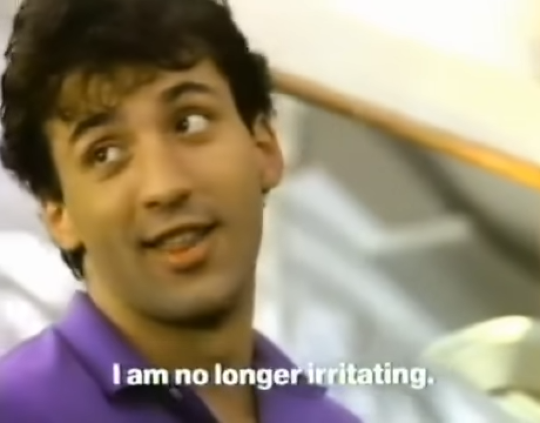
Divac was never irritating, everyone rooted for him inside and outside Sacramento, there was nothing we wanted more than a successful Vlade Divac decade or two as Kings general manager.
Vlade just filled the Kings with guys he knew, whether they were internationally-sourced first-round picks he'd heard a thing or two about (often, two things), or NBA veterans he'd seen around the block a few times. Cap space was spent on Rajon Rondo, Kosta Koufos, Marco Belinelli, 35-year old Caron Butler, Garrett Temple, Arron Afflalo, Matt Barnes and Anthony Tolliver. Holy lord. That's only like 80 combined points, so Vlade also signed 36-year old Zach Randolph.
Divac was not the reason the Kings were one of the most embarrassing outfits of the 2010s, that was owner Vivek Ranadive. And Vlade's soil was left somewhat unsettled by former GM Geoff Petrie, who followed up a brilliant first few seasons in Sacramento with an unsatisfactory few final entries.
However, Vlade's the one who sent the card to the the stage which read "Marvin Bagley III," he's the one who traded out of Jayson Tatum's draft position while treating NBA cap space (not nearly as infinite as MLB salary space, but always available) like NFL cap space. Biffed the DeMarcus Cousins deal (Buddy Hield, Justin Jackson, Harry Giles, a month of Tyreke Evans) back when other teams wanted Boogie.
BILLY KING
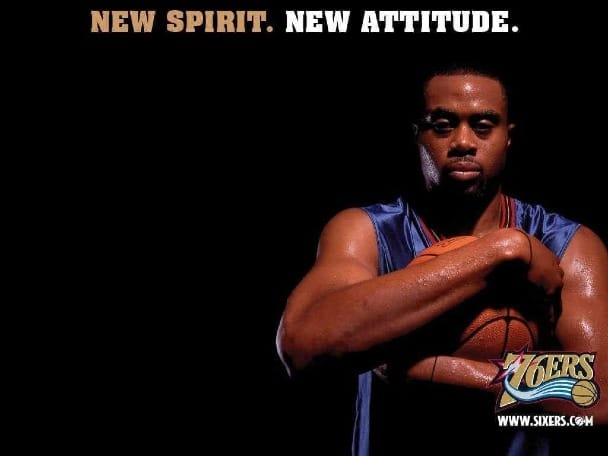
On a recent podcast, Bobby Marks passed along advice ex-Net and ex-Sixers GM Billy King once gave him regarding Allen Iverson. Marks and King worked with the Nets. Do not drink alcohol every time Bobby Marks mentions working with the Nets on his podcast.
King was general manager in Philadelphia when Larry Brown and Allen Iverson weren't talking but weren't losing. Mostly.
And what was the key to this no-talk, mostly-win situation? "You just deal with it."
What? No! First off, don't listen to Billy King regarding Allen Iverson's departure in Philadelphia, so nasty Iverson walked off the court after a loss in Chicago and never came back. If this is how to "deal with it," deal out.
Iverson and Brown spat, and King was supposed to be the executive in the room, dealing with it. Instead, King let Iverson battle with Philadelphia press in full view of cable TV's cameras, answering Iverson's further 2002 off-court troubles with, eh, let's trade for Keith Van Horn.
Brown split for Detroit in 2003, King answered by hiring ex-so-so Ohio State coach Randy Ayers, trading for 30-year old Glenn Robinson (he worked 42 games). King gave Kenny Thomas seven guaranteed seasons and $40 million and brought Brown-favorite Derrick Coleman back for three years and $11 million (he worked 35 games).
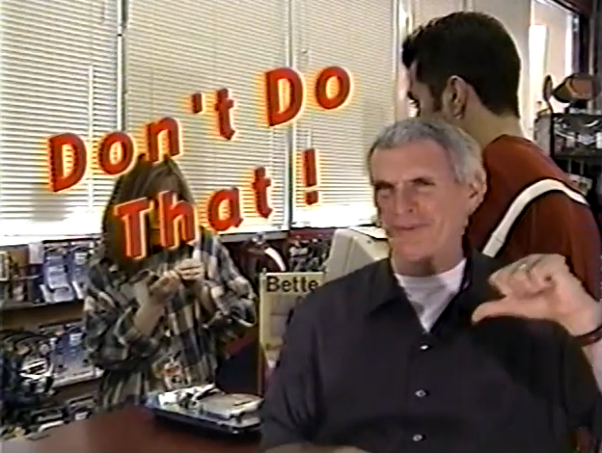
King relieved the Sixers of the final four-plus years of Thomas' contract only by dealing for the final three years of Chris Webber's contract, which somehow moved slower than Chris Webber. King paired Iverson with uninspiring, retread coaches: Jim O'Brien, Philly legend Maurice Cheeks. He hired Chris Ford as an interim shakeup for a playoff push, Chris Ford is the guy we have ready to take over?
The push didn't play. King got off the Glenn Robinson contract by dealing him for the retired contract of injured Jamal Mashburn, the logical conclusion to Allen Iverson's forever search for No. 2. See, Allen Iverson didn't want a No. 2, Allen wanted to be 1-through-4, which meant the Sixers cycled from lottery pick Larry Hughes to Toni Kukoc to Keith Van Horn to Robinson to an expiring deal insurance picked up the tab for.
King drafted well – Andre Iguodala, Lou Williams, Sam Dalembert at No. 26, John Salmons, Kyle Korver, Thaddeus Young, found Raja Bell and Matt Barnes – but also claimed Rodney Carney as his own, used the first-round picks he earned from trading Allen Iverson on Herbert Hill and Derrick Byars. Those are pennames, not point guards.
Philly fired King in December 2007, rather randomly when given the context of ownership's previous support.
The Nets hired King in 2010 and he immediately began clearing small bits of committed cash from his mismatched roster, earning future first-rounders. He shocked the NBA by dealing for Deron Williams days ahead of the 2011 trade deadline, nobody presumed Williams available but King had the key. Billy picked Utah's bones later in the year, dealing for Mehmet Okur for a second-round pick (and a trade exemption Utah used on Mo Williams, I looked that up and now you have to you remember it).
Problem was, that second-round pick turned into Pat Connaughton, still playing in 2025-26 (kinda). Trading for Williams cost them Derrick Favors, an NBA stalwart long past D-Will's last dribble, plus the No. 3 pick in 2011 (Enes Freedom drafted, coulda been Jonas Valanciunas). Another exchange sent Golden State its Draymond Green selection. Meanwhile, each of King's second-try guys – Jerome Moiso, Steven Hunter, Shelden Williams, Andray Blatche, Andrea Bargnani – ended their career as Nets.
D-Will's 2011-12 Nets owned a .341 winning percentage at the 2012 trade deadline, requiring at worst an 18-4 completion to the season to make the playoffs. Instead, the crossriver Knicks rode Mike Woodson (and whatever the opposite of Linsanity was) to an 18-6 finish and playoff berth. King's Nets finished 7-15, 13 games out of the playoff bracket.
The Nets improved down the stretch due to the efforts of new Net Gerald Wallace (15.2 points and seven rebounds in 35 minutes, 16 games), whom King acquired from Portland that 2012 trade deadline for an unprotected first-round pick in the upcoming draft. Two months after the trade, the Nets' old lottery odds spun exactly as expected, handing Portland the No. 6 pick in the 2012 NBA draft, Damian Lillard. In the offseason, Wallace turned 30. King turned every expiring contract he had (and a pick) into Joe Johnson. A year later, a very tired Gerald Wallace was dished to Boston for the highly-paid remnants of Boston's previous title team from five years ago.
Imagine some team mortgaging its future on the shoulders of someone who dragged another franchise to a title five years ago oh wait that is why we are doing this column.
The Nets did not win an NBA title in 2014 or 2015 or 2016, when King was fired. The Celtics won a title in 2024 with Jayson Tatum and Jaylen Brown culled from the Nets picks, Derrick White earned tangentially (Romeo Langford!) from the 2013 deal.
ISIAH THOMAS
Isiah Thomas was the original, "this has to be a hack."
February 2006, trade deadline season, I'm watching the RealGM scroll. Hacks were around at the time, someone would announce a crazy trade on a message board by posting a shortened URL, it would lead to a bogus newspaper website or, more often, a fake RealGM rumor page aggregating the deal (typically involving an unhappy Kobe Bryant heading elsewhere), burdening poor David Aldridge or Marc Stein with the concocted byline.
The 2006 trade deadline was Isiah's third with the Knicks and we were used to anything, like dealing five expiring contracts and two first-rounders for the pleasure of employing Stephon Marbury, or sending Nazr Mohammed for Spurs and Suns first-rounders (essentially second-rounders). Anything for a backpage splash, anything to kick the can along.
The Marbury deal was ahead of the trade deadline, first week of January in 2004, two weeks after Isiah took over. The Knicks were Stephon's fourth team in five years for various reasons, chief among them the way the team which traded him fancied a better life without Stephon after noting the exchange package presented. The Suns saw two returning first-rounders plus a free agent chance at Steve Nash. In acquiring Marbury, Isiah set the RealGM message board afire.
And the RealGM message board was the internet. Oh, there were others: ClutchFans, APBR, InsideNBA Chat Dot Net Slash Forum, Hoops-this, Hoops-that, but nothing Binged and Bonged like the RealGM Knicks board. By 2004 that particular part of the internet had tried to trade for a star for Four Internet Years, enduring an impossibly long term. Their patience paid off, Starbury was home.
Isiah rolled, sending Keith Van Horn out and acquiring the provably worse Tim Thomas, but thieving Nazr Mohammed from Atlanta. He found Trevor Ariza with the 43rd pick. He turned four other expiring contracts into a sign-and-trade for Jamal Crawford, a terrible backcourt partner for Stephon Marbury, and Jerome Williams, whom he would waive with the Allan Houston Rule, while keeping Allan Houston. At the 2005 deadline Thomas sent more expiring deals to Houston for black hole scoring forward Maurice Taylor.
New York's lineups were hilarious, and Thomas' Knicks missed the playoffs in 2005 after making it (with 39 wins) with Marbury in 2004. But Isiah drafted well. David Lee at No. 30, Channing Frye at No. 8, he stepped in to take Quentin Richardson's contract and Nate Robinson's contract off the cheapo Suns. You've noticed that nobody here plays defense, well, this was also the offseason Isiah traded two picks for Eddy Curry.
Those picks turned into LaMarcus Aldridge and Joakim Noah, but don't fret, Isiah Thomas hired Larry Brown to coach a Knicks team with Eddy fuckin' Curry at center. That team was 14-31 when Isiah Thomas, literally with his Knicks in Toronto as the Knicks played the Raptors, dealt longtime Larry Brown favorite (and lone Knick defender) Antonio Davis to the Raptors for Jalen Rose, the non-defender who clashed repeatedly with Brown a decade earlier in Indiana.
So one can understand, when I cynically noticed RealGM telling me the Knicks dealt more expiring contracts PLUS identified up-and-comer Trevor Ariza to Orlando for Steve Francis AND the three years and $47 million remaining on Francis contract. I turned on the ticker, ESPNEWS confirming Francis' name in the lower right corner. It was funnier than basketball trades should be. Isiah Thomas is the only GM in the NBA that's made me laugh so hard.
Steve Francis and Stephon Marbury in the same backcourt with Jalen Rose calling for the ball on the wing and Eddy Curry literally looking on. Later, to fill out the roster, Isiah Thomas added Zach Randolph.
He also signed Jared Jeffries (4.3 points and 3.9 rebounds in over 22 minutes per game as a Knick, 148 contests, five years and $30 million) and Jerome James (low-post, high-percentage big-man shot forty-four percent on field-goals, five-years and $29 million) to full mid-level exceptions. Thomas' lone postseason was in 2003-04, when he joined New York midseason and traded for Marbury. New York mustered 33, 23, 33 and 23 wins the next four years, which, as a Bulls fan, was enjoyable.
Years ahead of his time with the Knicks, Isiah was Toronto Raptors GM before his ousting after a failed ownership coup. After that gig, directly prior to James Dolan hiring Thomas to run the Knicks, Isiah bankrupted the Continental Basketball Association, an organization which predated the NBA.
MAVERICKS
Dallas' absolute best bet is to deal anyone under 25 and soon. This is the NBA, and, in spite of what else is in this column, the NBA tends to move onto other subjects with alacrity.
Maverick embarrassment is well beyond saturation point, good deals done quickly (to consolidate Cooper Flagg's timeline) won't make things any more squeamish than they were Monday evening. Dallas fans will happily scoreboard watch some other team's draft picks, they will talk themselves into any returned prospect. They've only just met Anthony Davis, there is no connection there other than the reminder of what Davis represents. Dallas fans aren't dumb, they can handle a rebuild, moving on from an injury-riddled 33-year old.
The worst trade ever coulda worked. There is a scenario whereupon the Mavericks trade Luka in early 2025 and make out somehow. Dallas obviously thought its star player was well on the way toward an Achilles tear and that the star player didn't respect the front office. The problem was that Dallas didn't deal him for the right player, nor the right package or with the right team. Dallas didn't deal after the proper trip to market, as someone Dončić's caliber demands. That no other team was involved in trade talks was scandalous.
Claiming new ownership of a "two-way" player only makes sense if Anthony Davis were years younger than the 33 he'll turn in March. Dallas didn't swap Dončić out for Evan Mobley or Jaren Jackson Jr. or the more-famous-if-less-profound Bam Adebayo. Dallas didn't try to go obscure with Matas Buzelis or Amen Thompson or Donovan Clingan, no prospect like Scottie Barnes. Zero draft picks, and lazily traded for the Famous Laker.
No, not that one. No, not him either.
It is not the front office's fault Kyrie Irving tore his ACL? A fluke injury happened to a prime candidate for major injury. Kyrie is 33-years old and with 96 career playoff games under his belt, it is not NBA-unnatural for him to play 50 games spread out over two seasons.
Trading young for old is not merely bad basketball, but bad business. This is bad business even if Luka were loathed, which he wasn't. It is bad business to select Anthony Davis as foundation when AD is demonstrably bad at staying on the basketball court. Limiting the market for Luka's services was bad business. Spending too much money on the same position is bad business. As an executive, he failed the Mavericks.
Patrick Dumont, I mean. I haven't mentioned Harrison once. If there's anything I've learned, 5,700 words later, is that there are no bad general managers, only terrible fucking owners.
I MISSED AGAIN
Thank you for reading!
To everyone who re-upped yearly in November, thank you. You are the single-digit handful from 2017, when I told everyone I needed help moving forward and you stepped up immediately, routinely, and for a lot of money. It is because of you that there is


